What an adventure for a kid to play in his or her first chess tournament! But what can you expect? How strong will your opponents be? Let’s look at an example of ratings of young players in a multi-division tournament in California. This was not a huge tournament, more like an average event.
But first, what are ratings given by the United States Chess Federation? A typical chess player having a rating of 100 would be a beginner who knows little about winning a game. He or she could know the rules but would be losing almost every game except those played against players who also have almost no skill in winning chess games.
What about a player rated 700? That person could win every game played against a player rated 100, even if more than five games were played. The exception would be if the one rated 100 was to improve rapidly during those games, learning from the experiences of losing. But in the great majority of games, if one player is rated at least 600 points more than his or her opponent, the higher rated player is extremely likely to win.
On the next level, someone attaining a rating of 1300 would be extremely likely to win against a competitor rated 700. As in the above comparison, several games could be played, each of them won by the higher-rated player.
Junior Chess Tournament in California in 2007
This was divided into four divisions:
- Champions
- Premier
- Rising Star
- Extra Rated
Let’s look at the USCF ratings of some of these children, beginning with the highest-placing competitors in the highest division. Ratings are for before the tournament began.
“Champions”
Three-way tie for first place: rated 1488, 1284, 1165 three wins and one draw each)
Four kids had three points each (usually three wins and one loss): 1085-1504.
Three competitors had two-and-a-half points: Their ratings were 965, 1091, 1270.
The remaining 17 players had zero to two points. The lowest rated kid was at 909.
“Premier”
First place went to a player rated 1085 before the tournament: five wins in five games. Most of the 35 players were rated between 600 and 900.
“Rising Star”
Nine of the thirteen kids had ratings before the tournament began: from 100 to 485. The other four had been unrated.
“Extra Rated”
Only two players competed here: rated 545 and 810 before they played each other. (The lower-rated child beat the higher-rated one.)
.
The following images are from a few years ago, from a chess tournament for children, held in Europe. Photos often speak better than words.
These two opponents are about to shake hands and then play chess
.
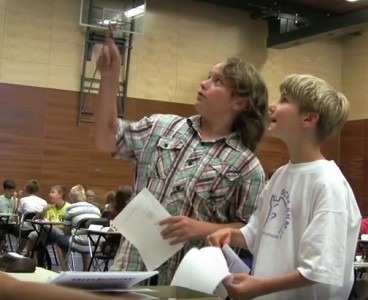
They’re probably looking at the most recent scores in the tournament
.
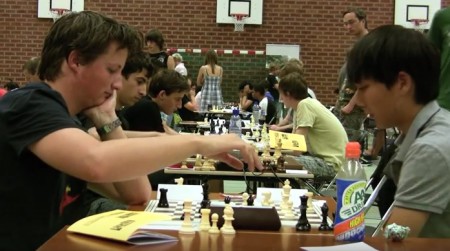
The black side is making a move in this game between teenagers
.
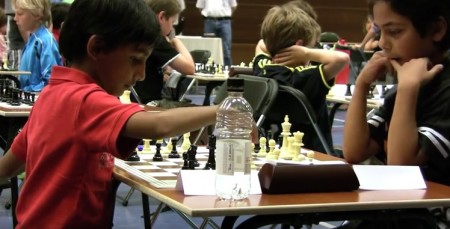
Younger children also competed in this chess tournament in Europe
.
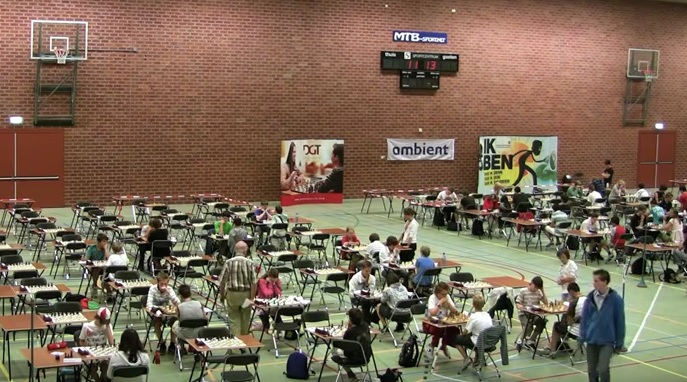
Don’t let the size of the room bother you. It’s just one chess game at a time, for you.
###
.
Best Chess Book for the Beginners
A much better choice [than the book “Chess for Children”] would be Beat That Kid in Chess, which is written for the early beginner who knows how to play but does not yet know much about winning in an actual competition.
This may be the best chess book for the adult or teenager who knows the rules of the game but very little about what it takes to win [the new paperback Beat That Kid in Chess].
Contrary to what the title would suggest, it’s not actually about winning against a young opponent. It’s for the “raw beginner” and it’s very basic [regardless of the age of your opponent].
Beginners’ Chess Books (three publications)
I’ve been promoting my own chess book (for novices) for several weeks now: Beat That Kid in Chess. So why would I mention two competing books on the royal game, both of them for beginners? Mine could be the only one ever written that uses a new teaching method called nearly-identical positions.
Preparing for a Chess Tournament
“Preparing your child for tournament play“
.
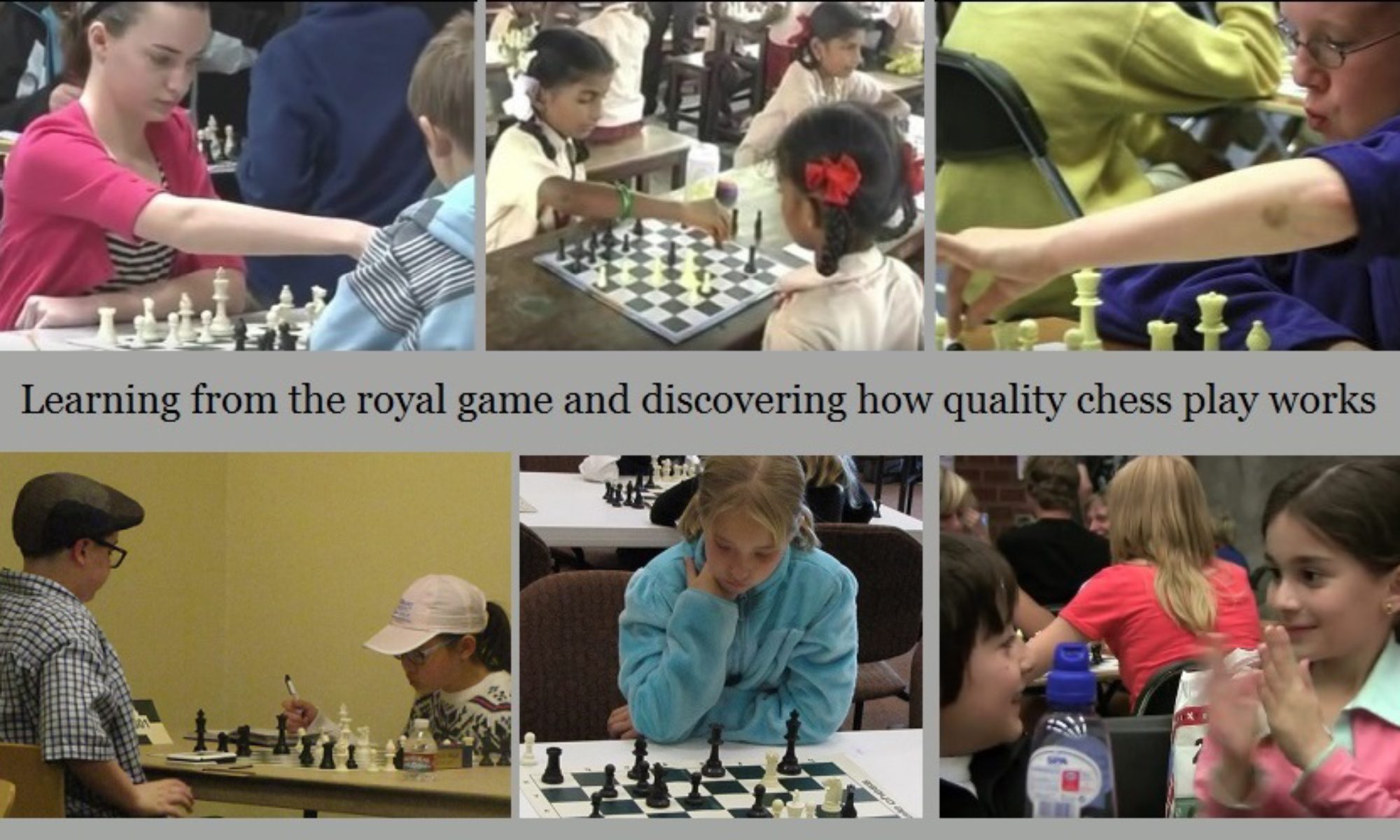
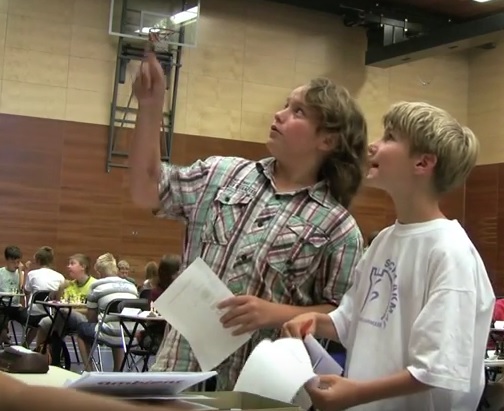


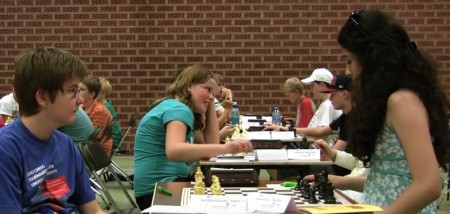
One Reply to “How Strong are Children in Chess Tournaments?”
Comments are closed.